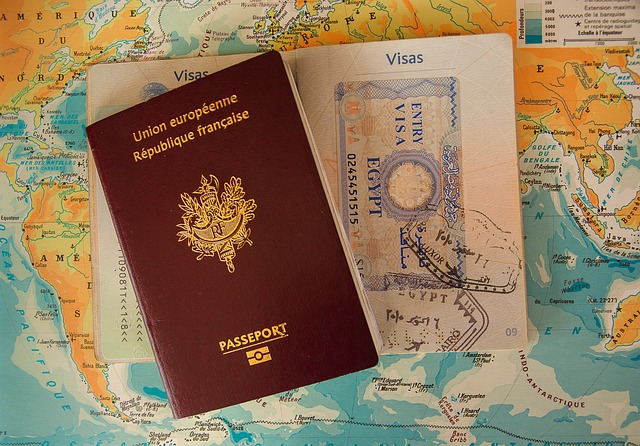Austria, with its robust economy, high standard of living, and central location in Europe, is an attractive destination for professionals seeking employment opportunities. However, navigating the work permit and visa requirements can be complex, especially for non-EU citizens. This guide provides a comprehensive overview of the work permits and visa requirements in Austria, helping you understand the necessary steps to legally work and reside in the country.
1. Overview of Work Permits and Visas
Austria’s immigration system distinguishes between EU/EEA citizens and non-EU/EEA citizens when it comes to work permits and visas.
- EU/EEA Citizens: Citizens of European Union (EU) and European Economic Area (EEA) countries, as well as Switzerland, enjoy the right to freedom of movement. They do not need a work permit or visa to live and work in Austria.
- Non-EU/EEA Citizens: Non-EU/EEA citizens must obtain a work permit and, in most cases, a visa to legally work and reside in Austria.
2. Work Permits for Non-EU/EEA Citizens
Non-EU/EEA citizens must secure a work permit before starting employment in Austria. The type of work permit required depends on the nature and duration of the employment.
a. Red-White-Red Card (Rot-Weiß-Rot Karte)
The Red-White-Red Card is a combined work and residence permit designed for skilled workers, highly qualified professionals, and other specific categories.
- Eligibility Criteria:
- Skilled Workers in Shortage Occupations: Individuals with qualifications in occupations facing a labor shortage in Austria.
- Very Highly Qualified Workers: Professionals with exceptional qualifications, such as academics, scientists, and specialists.
- Other Key Workers: Includes startup founders, self-employed key workers, and graduates of Austrian universities.
- Application Process:
- The employer in Austria must initiate the application process by obtaining a job market approval (Arbeitsmarktprüfung) from the Public Employment Service (AMS).
- The applicant must then apply for the Red-White-Red Card at the Austrian embassy or consulate in their home country.
- Validity: The Red-White-Red Card is initially issued for up to 24 months and can be renewed.
b. EU Blue Card
The EU Blue Card is a work and residence permit for highly qualified non-EU/EEA citizens.
- Eligibility Criteria:
- A university degree or equivalent qualification.
- A job offer in Austria with a minimum annual gross salary of at least 1.5 times the average gross annual salary (approximately €66,000 in 2023).
- Application Process:
- The employer must obtain a job market approval from the AMS.
- The applicant applies for the EU Blue Card at the Austrian embassy or consulate in their home country.
- Validity: The EU Blue Card is issued for up to 24 months and can be renewed.
c. Seasonal Work Permit (Saisonier)
For temporary and seasonal employment, such as in agriculture, tourism, or construction.
- Eligibility Criteria:
- A job offer for seasonal work in Austria.
- Application Process:
- The employer must obtain a job market approval from the AMS.
- The applicant applies for the seasonal work permit at the Austrian embassy or consulate in their home country.
- Validity: The seasonal work permit is issued for up to 6 months within a 12-month period.
3. Visa Requirements for Non-EU/EEA Citizens
Non-EU/EEA citizens typically need a visa to enter Austria, depending on the purpose and duration of their stay.
a. Visa Types
- D Visa (National Visa): Required for long-term stays exceeding 90 days, such as for employment, study, or family reunification.
- C Visa (Schengen Visa): Allows short-term stays of up to 90 days within a 180-day period, suitable for business trips or tourism.
b. Application Process
- Required Documents:
- Completed visa application form.
- Valid passport.
- Passport-sized photos.
- Proof of accommodation in Austria.
- Proof of financial means.
- Health insurance coverage.
- Job offer or employment contract (for work visas).
- Submission: Submit the application at the Austrian embassy or consulate in your home country.
- Processing Time: Typically takes 2-4 weeks, but can vary depending on the embassy and individual circumstances.
4. Residence Permits
Non-EU/EEA citizens planning to stay in Austria for more than 6 months must obtain a residence permit.
- Types of Residence Permits:
- Red-White-Red Card: Combines work and residence rights.
- Family Reunification Permit: For family members of Red-White-Red Card holders or other residents.
- Student Residence Permit: For non-EU/EEA students enrolled in Austrian educational institutions.
- Application Process: Apply at the local immigration office (MA 35) in Austria after entering the country with a valid visa.
5. Key Considerations for Employers
Employers in Austria play a crucial role in the work permit and visa application process for non-EU/EEA employees.
- Job Market Approval: Employers must obtain approval from the AMS, demonstrating that no suitable EU/EEA candidate is available for the position.
- Employment Contract: A valid employment contract outlining the terms and conditions of employment is required.
- Support with Applications: Employers often assist with the preparation and submission of work permit and visa applications.
6. Practical Tips for Applicants
- Start Early: Begin the application process well in advance to account for processing times and potential delays.
- Gather Documentation: Ensure all required documents are complete, accurate, and up-to-date.
- Seek Professional Advice: Consider consulting an immigration lawyer or specialist to navigate the complexities of the application process.
- Learn German: While not always mandatory, proficiency in German can enhance your job prospects and integration into Austrian society.
